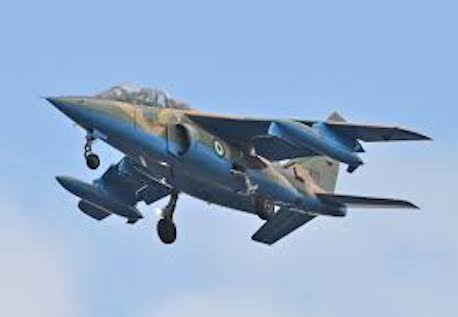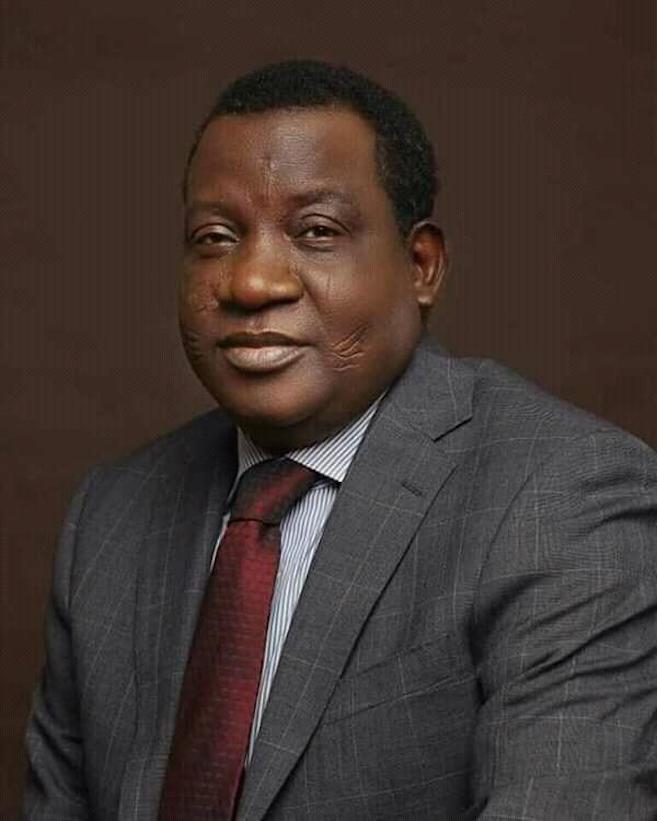COVER
FG Set to Implement Data, Calls Tariff Hike- Minister

By Tony Obiechina, Abuja
The Federal Government has stated that it was set to implement the new tariff hike of five percent on calls and data.
The Minister of Finance, Budget and National Planning, Mrs Zainab Ahmed confirmed the development at a stakeholders’ meeting, organised by the Nigerian Communications Commission (NCC) in Abuja on Thursday.
The Minister who was represented by the Assistant Director, Tax Policy, in the Ministry, Musa Umar, noted: “The five percent excise duty has been in the Finance Act 2020, but has never been implemented”.
She said government would begin the implementation of five percent excise duty tax on all voice calls, SMS and data services, in addition to the existing 7.
5 percent Value Added Tax (VAT), paid for goods and services across all sectors of the economy.“Henceforth, the five percent excise duty will be collected by telecom operators and payment made to the federal government on a monthly basis, on or before 21st of every month.”
Concerning the five percent hike, the Minister of Communication and Digital Economy, Prof Isa Pantami had disclosed that there was a circular stating the planned hike which was addressed to his ministry and other relevant ministries and agencies of government.
The circular Referenced No. F. 17417/VI/286 dated 1st March 2022, and titled “Approval for Implementation of the 2022 Fiscal Policy Measures and Tariff Amendments” was addressed to different Ministers, including Honourable Minister, Communications and Digital Economy and other heads of government agencies.
The circular was also addressed to the Secretary to the Government of the Federation, Attorney-General of The Federation, Ministers of Industry, Trade and Investment, Agriculture and Rural Development, Mines and Steel and Development; among others.
The circular signed by Mrs. Ahmed reads: “A grace of ninety (90) days commencing from the date of implementation of this circular i.e April 1, 2022, shall be granted to all importers who had opened Form M and must have entered into irrevocable trade agreement before the coming into effect of this circular to process and clear these goods at the prevailing duty rates.
“However new import transaction entered from the 1st of April 2022 will be subjected to the new import duty regime,” she said.
Recall that the Finance Act, 2020 introduced ‘Telecommunication Services’ provided in Nigeria to be liable to excise duty under Section 21 (2) of the Customs and excise tariff etc. (Consolidation) Act, CAP. C49, LFN 2004.
A statement by the Minister’s SpecialAdviser on Media and Communications, YunusaTanko Abdullahi noted that this development, “therefore, means that all stakeholders have by that singular provision been aware of the Act”.
He said, “The excise duty on telecommunication services provided in Nigeria introduced through the Finance Act, 2020 with statutory enactment on 1st January, 2021 is yet to be implemented till date.
“This is considering the need to ensure reasonable transition period before the implementation of the new tax, as well as providing clarity to all stakeholders on implementation modalities.
“As a matter of emphasis, Mrs. Ahmed had vide Circular dated 1st March, 2022 informed the Nigeria Customs Service (NCS) and other heads of government ministries, departments and agencies (MDAs), including the Federal Ministry of Communication & Digital Economy about Mr. President’s approval of the implementation of the five percent excise duty on telecommunication services with effect from 1st June, 2022.
“The circular provided a 90-day moratorium with effect from 1st March, 2022 before the implementation of the excise tax. Currently, the excise tax is yet to be implemented.
“An issue as serious as the excise tariff cannot be taken single handedly, as all stakeholders and agencies have been involved including Manufacturers Association of Nigeria (MAN) and Association of Telecom Operators of Nigeria (ALTON), who wrote to the Ministry to be involved in the modalities for implementation of the excise duty.”
It could be recalled that Prof. Pantami rejected the planned implementation of five percent excise duty in the Nigerian telecoms sector.
He expressed his disapproval for the policy at a telecom forum in Lagos, organised by the Nigeria Office for Developing the Indigenous Telecoms Sector (NODITS), an agency domiciled in the Nigeria Communications Commission (NCC).
He said that he would explore every legitimate means to stop the planned five percent excise duty tax on telecom consumers, faulting the timing and process of imposing the tax on the telecom industry, insisting that part of the responsibility of a responsive government was not to increase the challenges citizens were facing.
“I have not been contacted officially. If we are, we surely will state our case. The sector that contributes to the economy should be encouraged. You introduce excise duty to discourage luxury goods like alcohol, but broadband in the telecom sector is a necessity,” he said further.
Continuing, the Finance Minister’s spokesman said, “zIn view of the above position of Prof. Pantami, there could be the question whether he was absented in the whole processes that resulted in the Finance Act, which is a product of both the National Assembly and Federal Executive Council (FEC).
“Suffice this to say that before the Act, the Finance Bill would have been through the FEC of which Prof. Pantami is a member and the National Assembly. In other words, he was involved in the making of the Finance Act which spells the said excise tariff hike policy.
“Therefore, he could not obviously have had a point in his dissenting views even as the National Assembly could not have contradicted itself on this matter, because the parliament had passed the Finance Bill before President Muhammadu Buhari signed it into law.
“Although Nigeria is celebrated as the largest economy in Africa, translating this wealth into revenues remains a challenge. Considering this in line with the provision of the revised National Tax Policy which provides the framework for a sustainable tax system that would ensure reliable sources of revenue to government and support economic development.
“Subsequently, in line with the Finance Act, the federal government introduced “Telecommunication Services” provided in Nigeria to be liable to excise duty under Section 21 (2) of the Customs and Excise Tariff etc. (Consolidation) Act, CAP. C49, LFN 2004.
“Nigeria is one of the largest telecommunication markets in Africa. Available report from the NCC shows four categories of operators, i.e. mobile (GSM), fixed telephony operators (fixed/ fixed wireless), internet service providers (ISPS) and others (operators other than mobile & fixed telephony, ISPs).
“Subscriber number continues to grow substantially, having increased from about 180 million subscribers in 2019 to over 200 million active subscriptions in 2020. This represents an increase of over nearly 11 percent in total subscriptions. Moreover, many countries in sub-Saharan Africa such as Tanzania, Uganda, Malawi, Kenya, Rwanda, Ghana and Burundi currently imposed excise duty on telecommunication services ranging between five percent to 20 percent”.
COVER
Anglican Bishop, Wife, Children Regain Freedom after Bandits Take Ransome

By Mike Odiakose, Abuja
Anglican bishop, Rev. Canon Olowolagba, his wife and two children have regained freedom after their kidnappers collected ransom, a family source said.
The Commander of the Ondo State Security Network (Amotekun), Adetunji Adeleye confirmed the release of Canon Olowolagba along with his wife and two girls.
“The pastor and family have been released,” Adeleye said in a short message on Sunday.
He was kidnapped on Saturday while travelling with his wife, their 16-year-old daughter and a nine-year-old girl living with them, along the Iboropa Road in Akoko North-East Local Government Area of Ondo State.
A source disclosed that they were released after a ransom amounting to millions of naira was paid.
The money, according to family sources, was raised through contributions from the family, the church, and associations.
The kidnappers initially demanded N75 million but later reduced it.
The Amotekun commander did not give details on how the victims were released.
The police did not to comment on the incident saying the matter was not reported to them.
Armed groups have been seizing Nigerians for ransom especially in the northern part of the country.
President Bola Tinubu has however expressed optimism about the progress made in addressing insecurity across the country.
In his maiden Presidential Media Chat in Lagos penultimate Monday, Tinubu said Nigerians are now safer travelling by road.
In his words, “Today, I have confidence in the security architecture of this country.
“You can still travel on the roads. Before now, it was impossible. It takes just one incident to disrupt an organized environment, but we cannot undermine the efforts of our military because of isolated attacks, such as the one on the Brigade Battalion.”
COVER
Innovation Key to Commodities Development – SEC

The Securities and Exchange Commission (SEC) said it was committed to promoting innovation and collaboration to position commodities exchanges as vital drivers of economic growth.
This was contained in a notice by the Director-General of SEC, Dr Emomotimi Agama, said on Sunday in Abuja.
Agama said the commission would innovate in capacity building, infrastructure development and partnership with stakeholders to improve and sustain commodities markets.
“Our role in sustaining commodities exchanges in Nigeria cannot be overlooked because at the heart of these exchanges’ functionality is the SEC whose regulatory oversight plays a pivotal role in ensuring their sustainability and credibility.
”Commodities exchanges in Nigeria facilitate the buying and selling of commodities in a structured and transparent environment.
”They provide farmers, traders, and investors with standardised contracts, enabling market efficiency and mitigating risks,” he said.
Agama said the vision of SEC was to provide an enabling environment, to protect investors, and to create a developmental strategy that would bring the commodities market into an enviable state.
”Nigeria is a commodity space; every state of this country has commodities in commercial quantities, so we are working to build that ecosystem in such a way that we are able to meet all of the blocks within the value chain.
”This will help us to achieve economic development, prosperity and a level playing field for every practitioner in this space,” Agama said. (NAN).
COVER
South Korea Plane Crash Claims 179 as Air Canada Skids Runway

By David Torough, Abuja
A Jeju Air plane carrying 181 people from Thailand to South Korea crashed on arrival yesterday, smashing into a barrier and bursting into flames, killing everyone aboard except for two flight attendants plucked from the wreckage.
According to AFP, a bird strike was cited by authorities as the likely cause of the crash — the worst ever aviation disaster on South Korean soil.
Similarly, a PAL Airlines aircraft, operating as Air Canada flight AC2259, executed an emergency landing at Halifax Airport, Canada, following a landing gear malfunction.
The incident, which occurred around 9:30 PM AT, was reported by CBC News yesterday.Passengers on the Jeju Air plane were flung out of the plane and it was “almost completely destroyed”, according to fire officials.
Video showed the Jeju Air Boeing 737-800 landing on its belly at Muan International Airport, skidding off the runway as smoke streamed out from the engines, before crashing into a wall and exploding in flames.
“Of the 179 dead, 65 have been identified,” the country’s fire agency said, adding that DNA retrieval had begun.
Inside the airport terminal, tearful family members gathered to wait for news.
An official began calling out the names of the 65 victims who had been identified, with each name triggering fresh cries of grief from waiting relatives.
Only two people — both flight attendants — were rescued from the crash, the fire department said.
“Passengers were ejected from the aircraft after it collided with the wall, leaving little chance of survival,” a local fire official told families at a briefing, according to a statement released by the fire brigade.
Both black boxes — the flight data recorder and the cockpit voice recorder — have been found, deputy transport minister Joo Jong-wan said at a briefing.
Under floodlights, rescue workers used a giant yellow crane to lift the burned-out fuselage of the orange-and-white aircraft on the runway at Muan — some 288 kilometres (about 180 miles) southwest of Seoul.
Bits of plane seats and luggage were strewn across the field next to the runway, not far from the charred tail, offering a glimpse into the catastrophic impact of the crash.
‘Mayday’
All of the passengers were Korean apart from two Thais, with the youngest a three-year-old boy and the oldest a 78-year-old, authorities said.
“I had a son on board that plane,” an elderly man waiting in the airport lounge, who asked not to be named, said.
“My younger sister went to heaven today,” a 65-year-old woman, who gave only her surname Jo, said.
Boeing said in a statement that it was in touch with Jeju Air and stood “ready to support them”.
Engulfed in flames
South Korea’s acting President Choi Sang-mok, who only took office Friday, convened an emergency cabinet meeting and then visited the crash site at Muan.
“The entire government is working closely together to manage the aftermath of the accident… making every effort to ensure thorough support for the bereaved families,” he said.
The country declared a seven-day national mourning period effective from Sunday, with memorial altars to be set up nationwide.
It is the first fatal accident in the history of Jeju Air, one of South Korea’s largest low-cost carriers, which was set up in 2005.
On August 12, 2007, a Bombardier Q400 operated by Jeju Air carrying 74 passengers came off the runway due to strong winds at the southern Busan-Gimhae airport, resulting in a dozen injuries.
South Korea’s aviation industry has a solid track record for safety, experts say.
A number of fatal aviation accidents have occurred globally due to bird strikes, which can cause a loss of power if the animals are sucked into the air intakes.
In 2009, a US Airways Airbus A320 famously landed in New York’s Hudson River after bird strikes on both of its engines, in an incident widely known as the “Miracle on the Hudson” because there was no loss of life.
The PAL Airlines aircraft
The PAL Airlines aircraft incident, which occurred around 9:30 PM AT, was reported by CBC News yesterday.
During the landing, the plane skidded along the pavement, triggering panic among passengers.
Nikki Valentine, a passenger onboard, recounted the harrowing experience, describing how the aircraft tilted approximately 20 degrees to the left, accompanied by a loud crash-like noise.
“The plane started to sit at about a 20-degree angle to the left and, as that happened, we heard a pretty loud—what almost sounded like a crash sound—as the wing of the plane started to skid along the pavement, along with what I presume was the engine,” Valentine told CBC News.
Viral footage from the incident captured the aircraft’s wings scraping the runway, causing a fire during the landing. Fortunately, no casualties were reported among passengers or crew.
The emergency landing at Halifax Airport ignited discussions on social media, with users drawing comparisons to a deadly incident in South Korea.
A flight from Thailand to Muan International Airport crashed after veering off the runway and bursting into flames, resulting in 120 fatalities.
“Unbelievable. Thankfully it landed with everyone surviving it appears,” one user remarked about the Halifax incident.
Another expressed concerns over the frequency of aviation mishaps, writing, “Two catastrophic landing gear failures in a matter of hours? What’s happening in aviation right now? Mechanical issues or something more sinister? Questions need answers—fast.”
Adding to the series of recent aviation accidents, an Embraer 190 aircraft operated by Azerbaijan Airlines crashed in Aktau, Kazakhstan, claiming 38 lives while 29 survived.
Deccan Chronicles reported that the flight from St. John’s, Newfoundland, skidded along the runway at Halifax Airport in Goffs, Nova Scotia.
The airport was temporarily closed on Saturday night, though one runway was reopened shortly after.
According to a passenger interviewed by CBC News, one of the aircraft’s tyres failed to deploy properly during the landing, causing the plane to tilt and skid for a significant distance.
“The plane shook quite a bit and we started seeing fire on the left side of the plane and smoke started coming in the windows,” she described.
Emergency crews responded swiftly, ensuring the safety of all onboard.


















